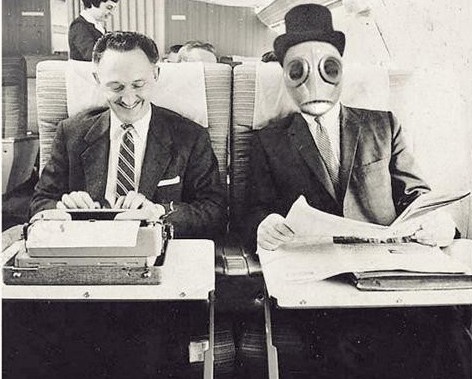Sadly, Ray Kurzweil is going to die sometime this century, as are you and I. We’re not going to experience immortality of the flesh or have our consciousnesses downloaded into a mainframe. Those amazing options he thinks are near will be enjoyed, perhaps, by people in the future, not us. But I agree with Kurzweil that while AI may become an existential threat, I don’t think that’s necessarily a deal breaker. Without advanced AI and exponential growth of other technologies our species is doomed sooner than later, so let’s go forth boldly if cautiously. From Kurzweil in Time:
“Stephen Hawking, the pre-eminent physicist, recently warned that artificial intelligence (AI), once it surpasses human intelligence, could pose a threat to the existence of human civilization. Elon Musk, the pioneer of digital money, private spaceflight and electric cars, has voiced similar concerns.
If AI becomes an existential threat, it won’t be the first one. Humanity was introduced to existential risk when I was a child sitting under my desk during the civil-defense drills of the 1950s. Since then we have encountered comparable specters, like the possibility of a bioterrorist creating a new virus for which humankind has no defense. Technology has always been a double-edged sword, since fire kept us warm but also burned down our villages.
The typical dystopian futurist movie has one or two individuals or groups fighting for control of ‘the AI.’ Or we see the AI battling the humans for world domination. But this is not how AI is being integrated into the world today. AI is not in one or two hands; it’s in 1 billion or 2 billion hands. A kid in Africa with a smartphone has more intelligent access to knowledge than the President of the United States had 20 years ago. As AI continues to get smarter, its use will only grow. Virtually everyone’s mental capabilities will be enhanced by it within a decade.
We will still have conflicts among groups of people, each enhanced by AI. That is already the case. But we can take some comfort from a profound, exponential decrease in violence, as documented in Steven Pinker’s 2011 book, The Better Angels of Our Nature: Why Violence Has Declined. According to Pinker, although the statistics vary somewhat from location to location, the rate of death in war is down hundredsfold compared with six centuries ago. Since that time, murders have declined tensfold. People are surprised by this. The impression that violence is on the rise results from another trend: exponentially better information about what is wrong with the world—another development aided by AI.
There are strategies we can deploy to keep emerging technologies like AI safe. Consider biotechnology, which is perhaps a couple of decades ahead of AI. A meeting called the Asilomar Conference on Recombinant DNA was organized in 1975 to assess its potential dangers and devise a strategy to keep the field safe. The resulting guidelines, which have been revised by the industry since then, have worked very well: there have been no significant problems, accidental or intentional, for the past 39 years. We are now seeing major advances in medical treatments reaching clinical practice and thus far none of the anticipated problems.”
Tags: Elon Musk, Ray Kurzweil, Stephen Hawking

